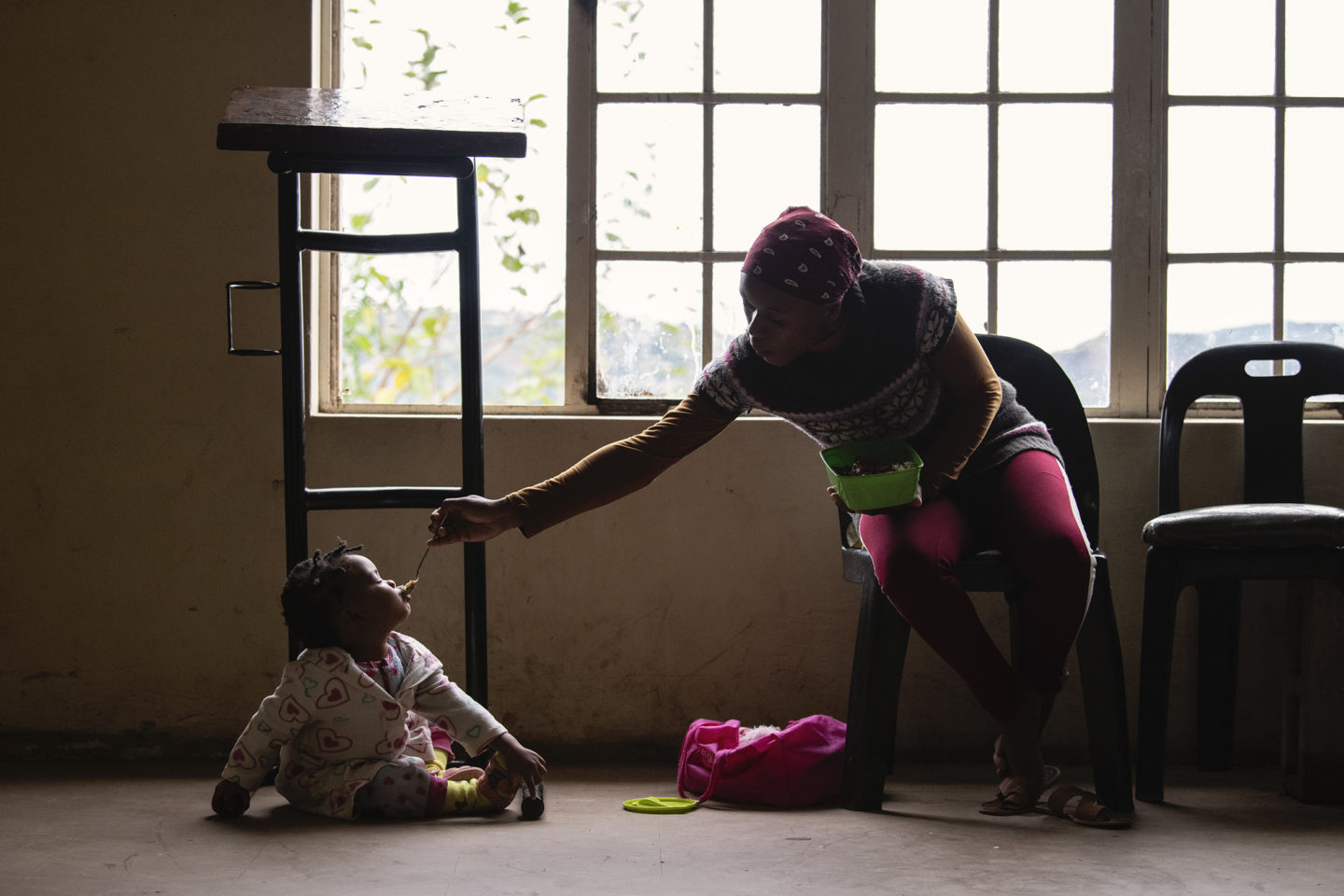No escaping the ‘river of death’
Bodies are still missing after heavy rainfall in KwaZulu-Natal caused massive flooding. Now distraught families are left to pick through the wreckage of their lives.
Author:
4 May 2022
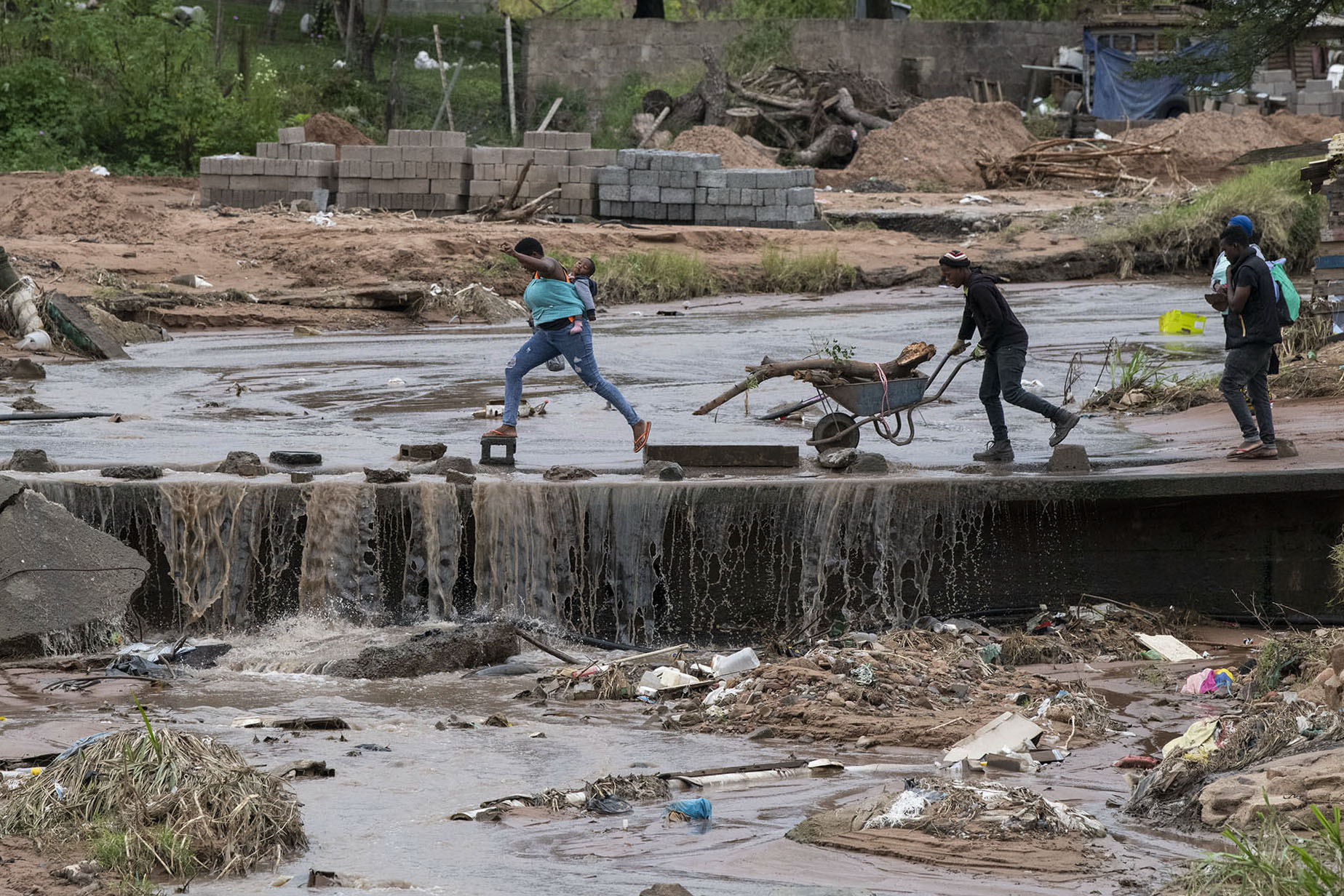
“Ngiyawuzonda lomfula. (I hate this river),” says Nomfundo Nyamela, 56, pointing to the Cutshwayo River in KwaNdengezi, which has again left her in mourning. In 2019, the river washed away her 29-year-old son. Three years later, it swelled during the floods that killed hundreds and displaced thousands in KwaZulu-Natal, and another eight of Nyamela’s family members died.
“We drink water from this river of death,” says Nyamela. “We saw our entire family get washed away by this river. We make the baby’s milk from the same water that flows with the lost souls of our family and our neighbours. We cannot stay here any longer. It is unbearable. Sometimes I contemplate my own death, to throw myself in this river and join the others.”
Twelve people died when a wall collapsed in a house in which they were sheltering, burying them in mud. Eight of the victims were Nyamela’s family members, and only one has been found. Four were from the Mthembu family, Nyamela’s neighbours, who came seeking refuge at around 10pm on 11 April.
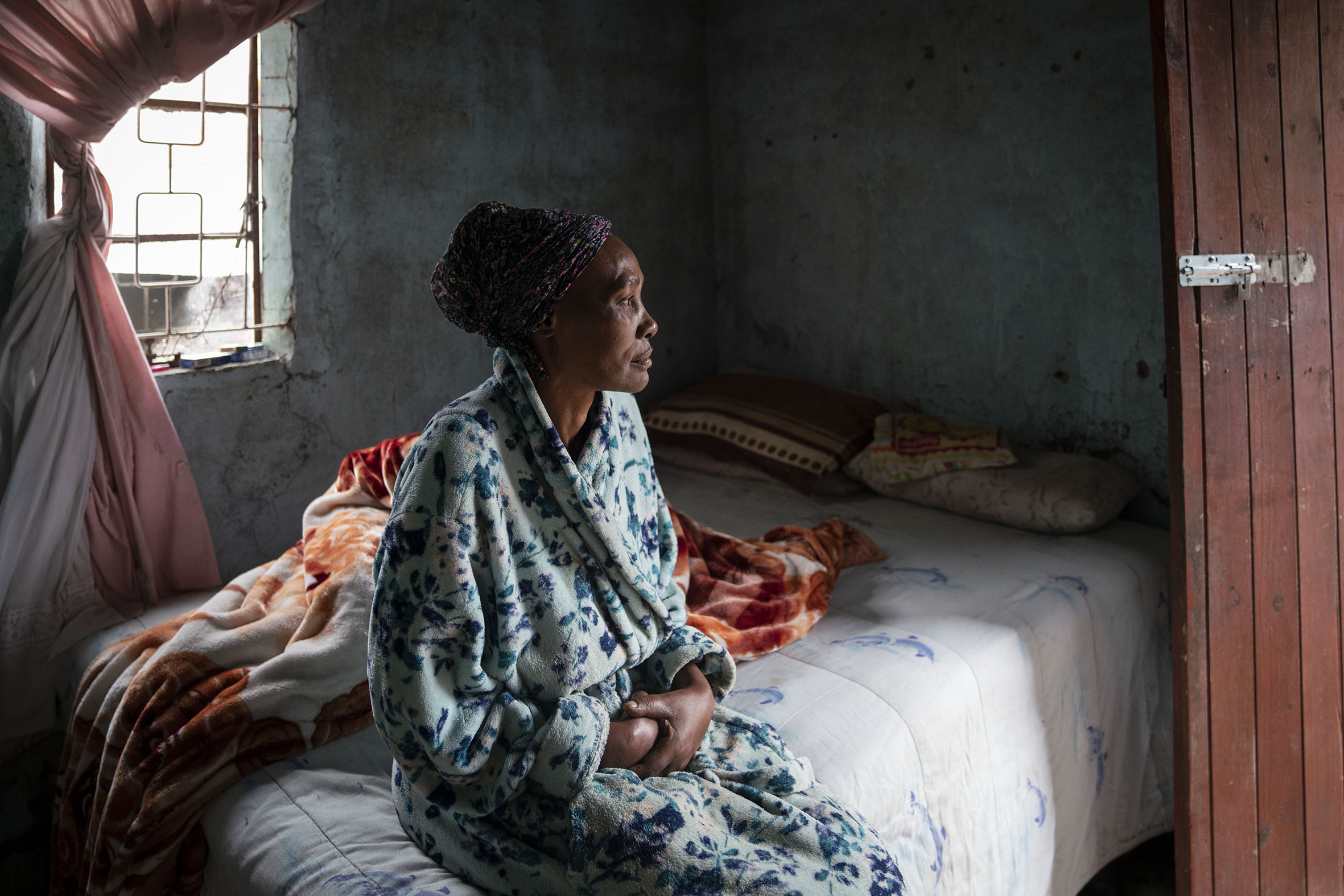

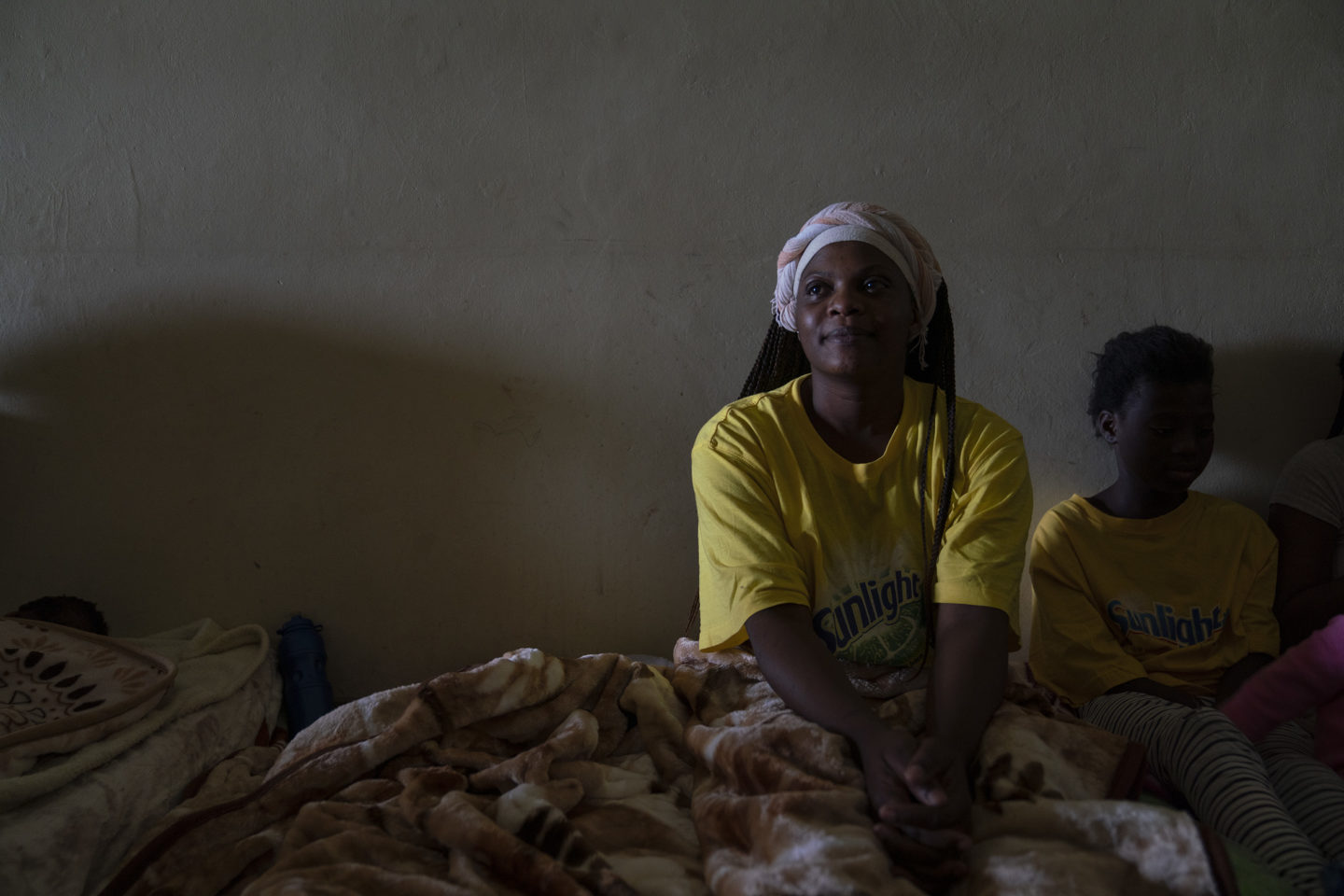

“I had a baby on my back and as I tried to run towards them, suddenly the ground opened up and the entire family just vanished,” says Nyamela. “I just froze. We were all in panic and trying to figure out how to get the children out of the main house as it was also starting to crack. I saw a wave of mud that started to look like it was boiling. It created a wave of mud that hit the house and destroyed everything. After that, we couldn’t hear a single sound, no screams, no cries.” Nyamela is now the oldest member of the extended family of 15. She is terrified by the thought or sight of rain.
“Right now pain and uncertainty is my only reality,” says Nonhle Zwane, 29. “I get up at around 3am every day now. I relive the scene in my mind.”
Zwane’s daughter, Luleka, 10, is among the 12 people who died in the house. Those who have not been found include Hlelolwenkosi Hlophe, 1, Qobo Hlophe, 3, Sisanda Hlophe, 5, Nasisipho Mthembu and Melokuhle Mthembu, both 8, and Ngenzeni Mhlongo, 67.
“It’s hard to sleep at night when you don’t know where your child is. Your heart never gets peace. Even a bone, one bone at this point could help me grieve and make peace with death,” Zwane says.
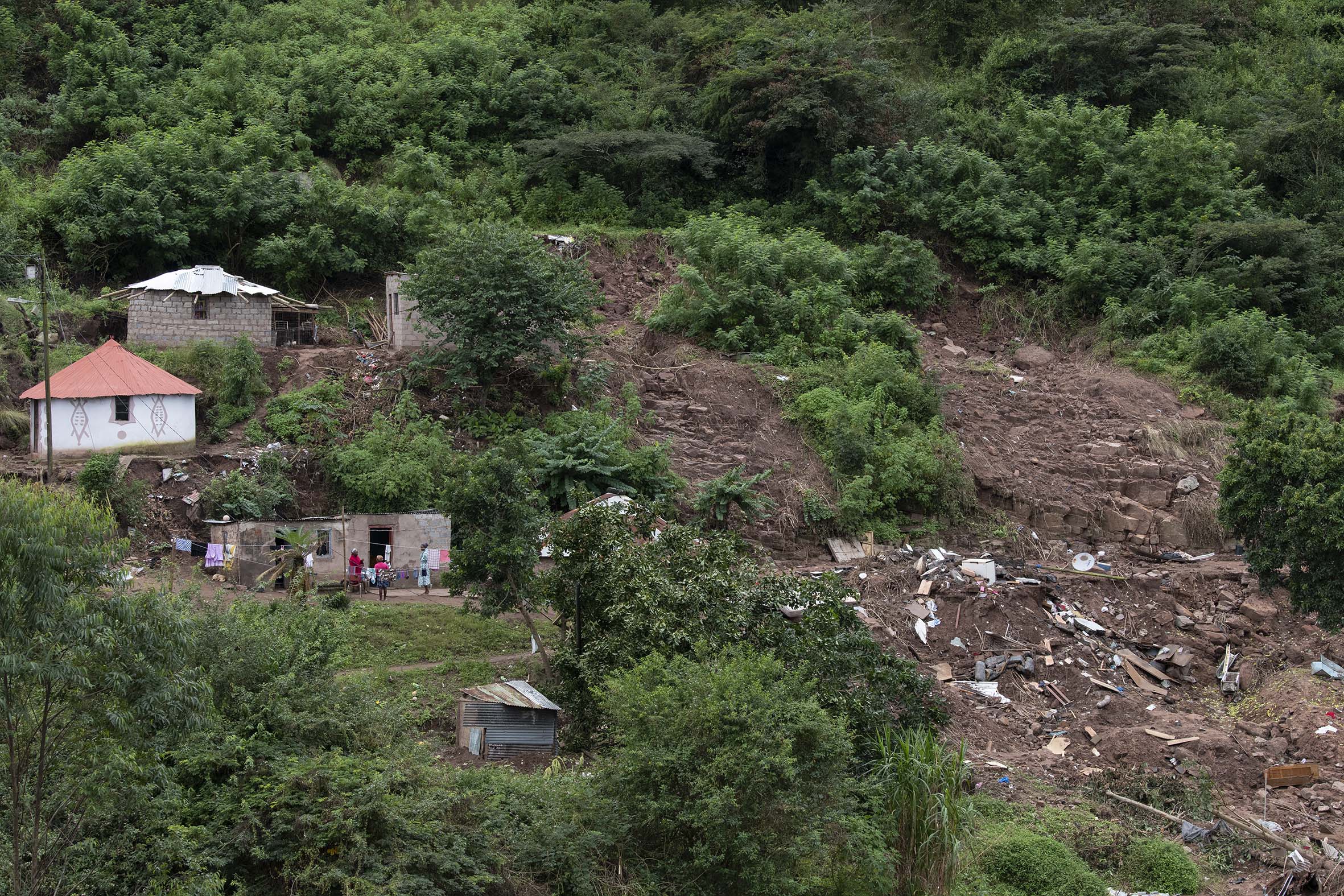

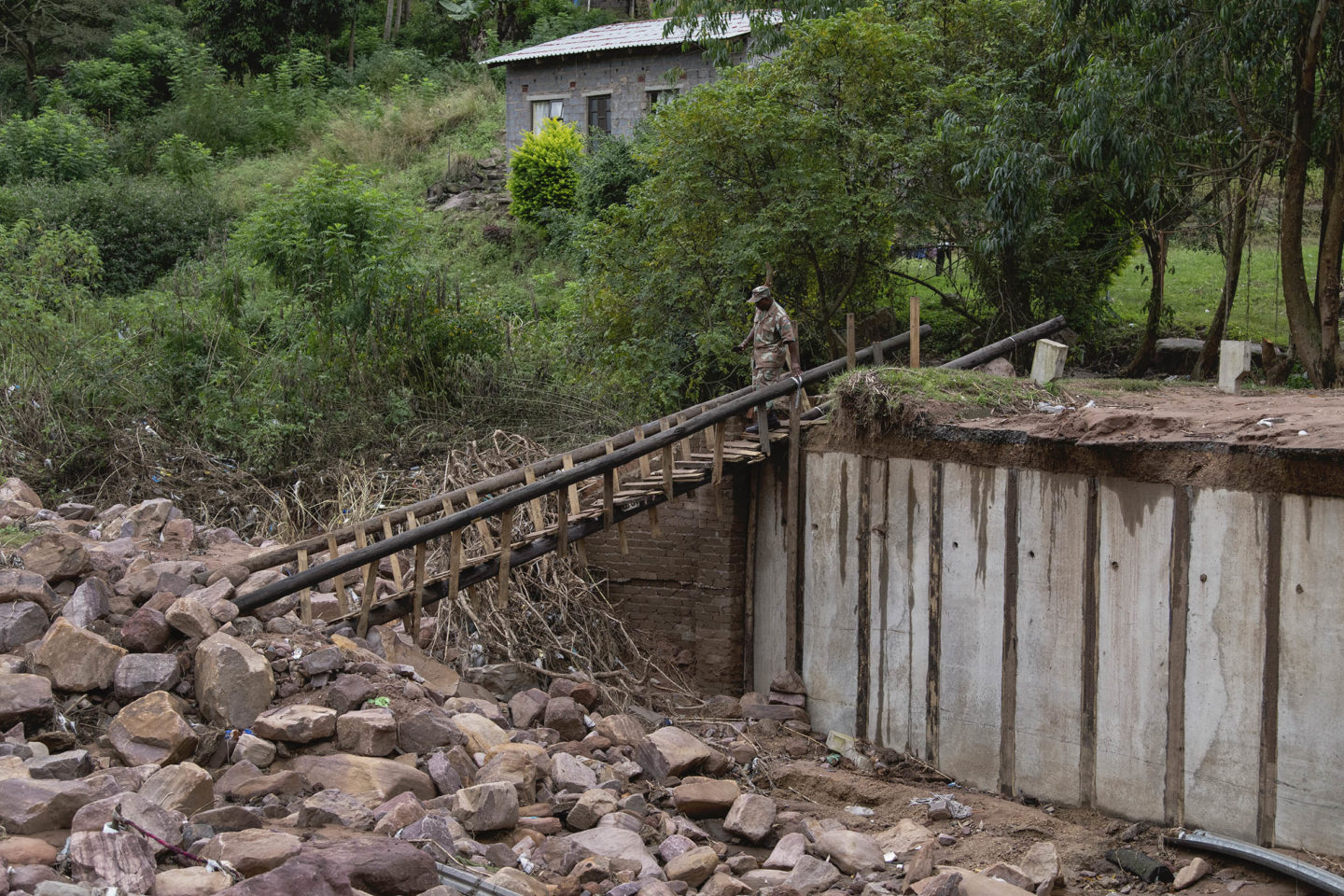

Losing everything
The floods have left about 4 000 people homeless. The death toll is estimated to be 435, with a further 72 people missing. Affected residents in KwaZulu-Natal now rely on emergency support from the municipality and non-government organisations for survival. Life-saving food and items, including mattresses, water, menstrual products and nappies are in high demand.
In Coffee Farm, a few kilometres away from Cutshwayo village, affected residents gather at the hall to receive warm meals and blankets. For some families, the hall has been home since 12 April. Sitting on thin mattresses, eight women with their children wait in the designated room for the day’s meal inside the hall.
“How could something meant to bring us life take away everything all at once? Our children, mothers and homes?” asks Fikile Ndaba, 62.
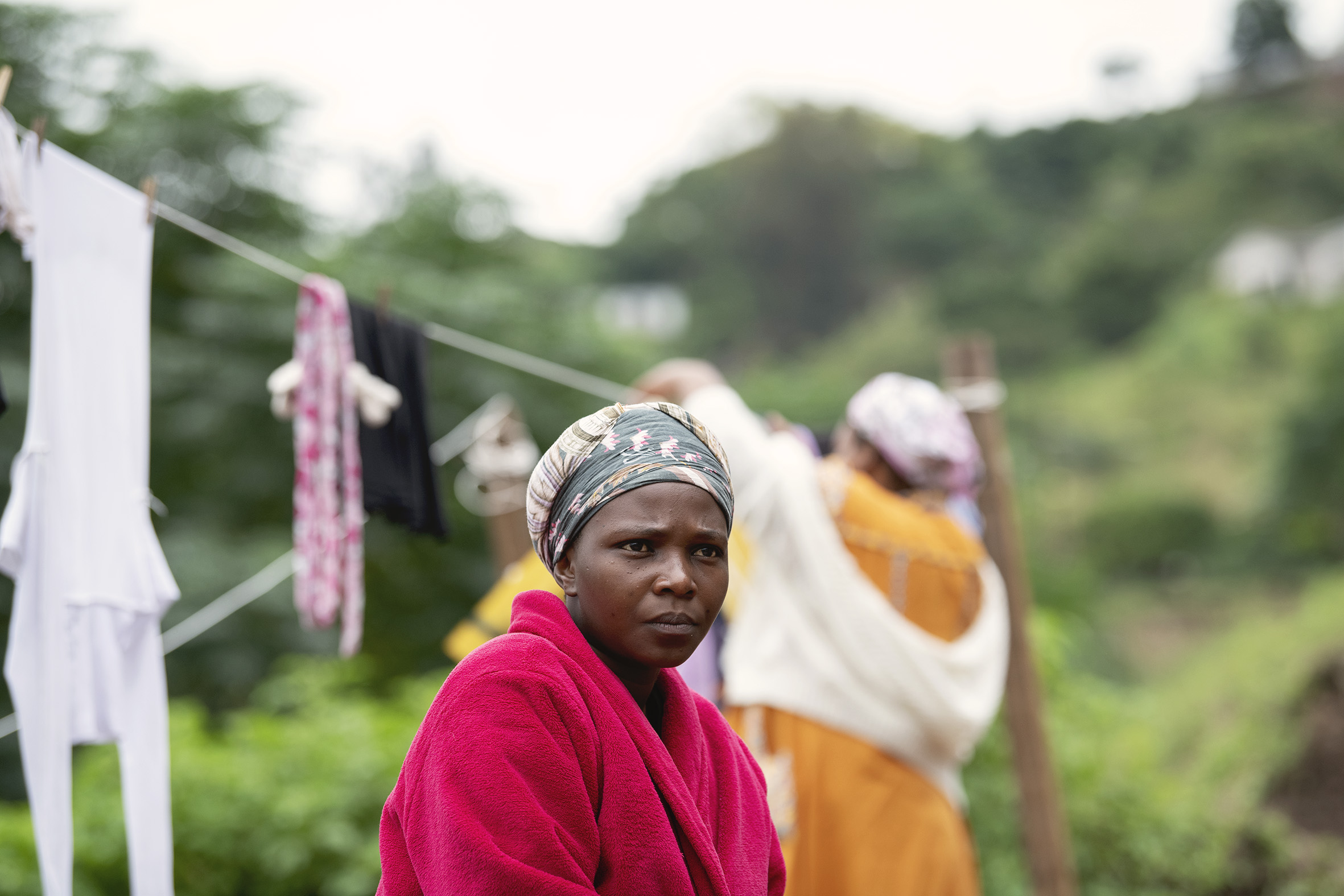

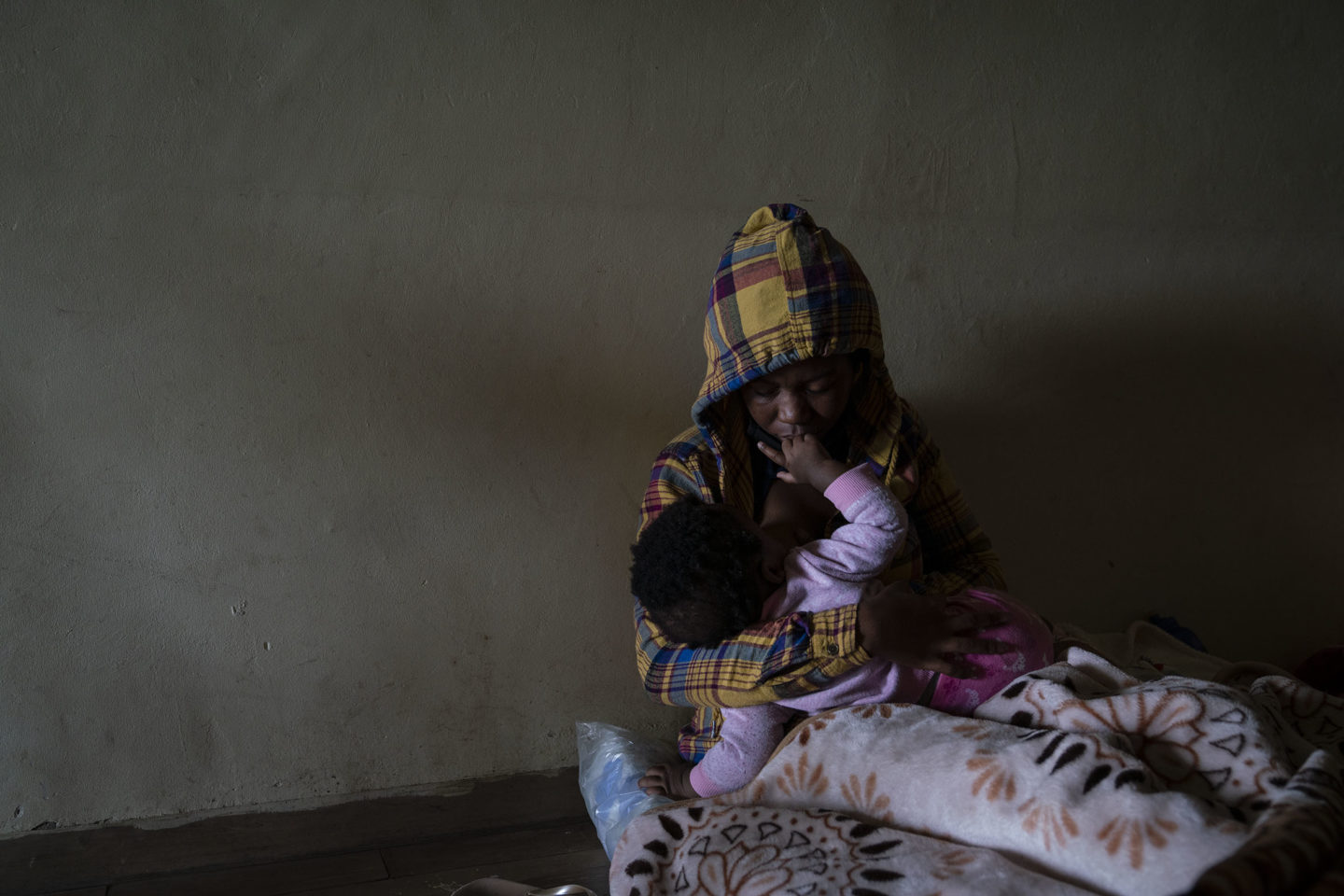

Ndaba says she lost half her home on the night of the floods. Thieves stole most of her belongings and furniture afterwards.
Lindiwe Gina, 25, seated across from Ndaba on the hall floor, recounts the moment she lost her chance of a home. Gina, a mother of one, and her younger sister, Welile Gina, 22, had been without a place to live since 2002. After their father’s death, they say, their mother abandoned them. In July last year, a local woman gave them shelter in an abandoned house near the Cutshwayo River.
“We were excited when we finally had our home,” says Lindiwe. “After staying in people’s houses, often mistreated and abused, in the end we thought we were going to be okay. It was a happy Wednesday afternoon and we were preparing for my one-year-old’s birthday party. When the floods started, we went to seek refuge with our neighbours … We knew the house couldn’t survive.
“We couldn’t sleep at night thinking about our house. When it was the next morning, we went to check and realised there was actually no evidence there was ever a house. Just pieces of blocks scattered but it looked like there was no life there. And while we are grateful for our lives. We don’t know where to begin again.”
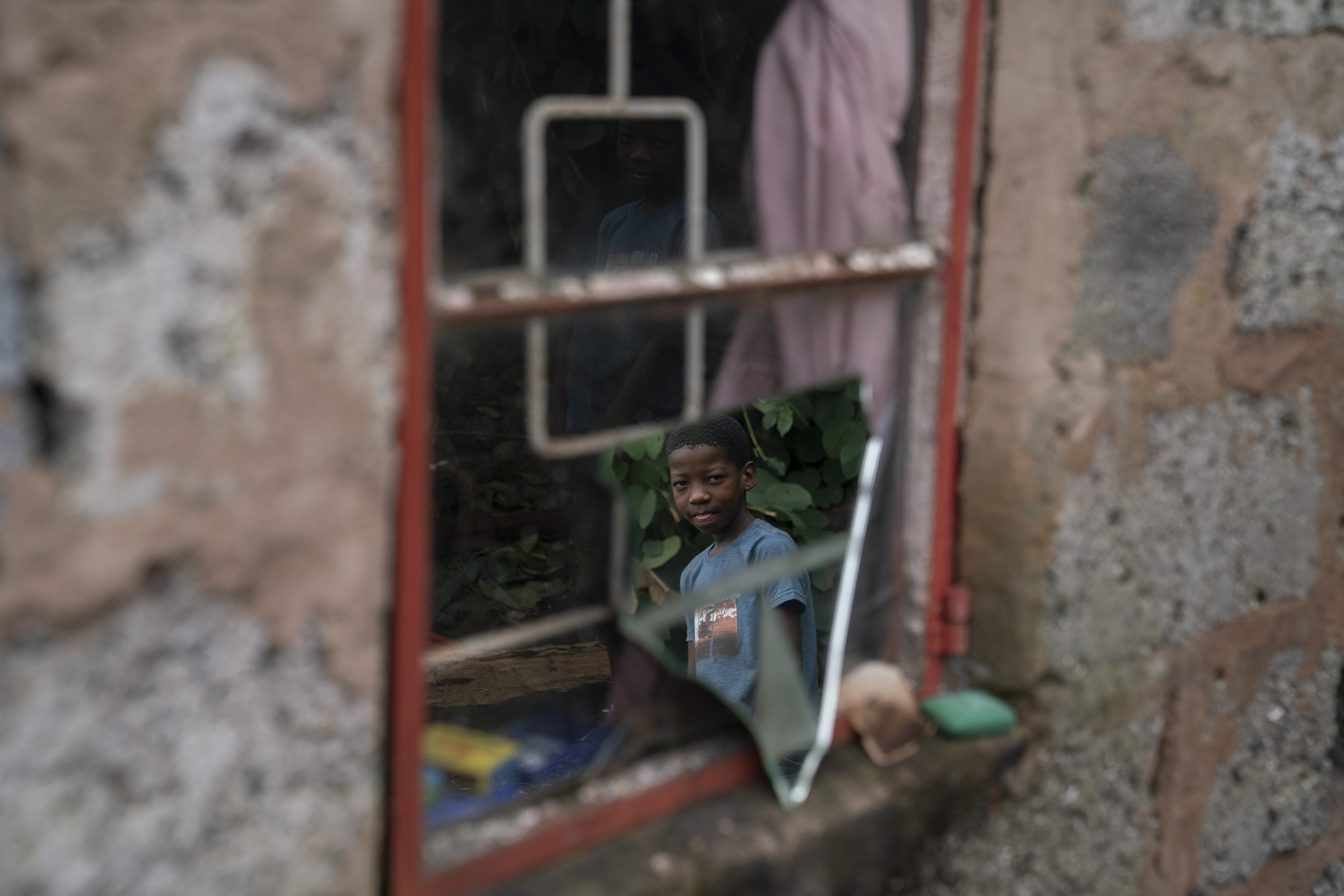

Sharing stories
S’nethemba Ntshangase, 24, also feels at a loss. She says having people to talk to has helped ease some of the pain. Both Ntshangase’s parents died in 2020. Then, in the same year, her only sister died by suicide. She says after her sister’s death, she got a job looking after a woman who was living with cancer and was able to rent a place nearby with her 10-month-old daughter.
After hearing shattering sounds and seeing cracks on her walls, she fled her home, grabbing what she could. The house collapsed soon after and the flood washed away everything.
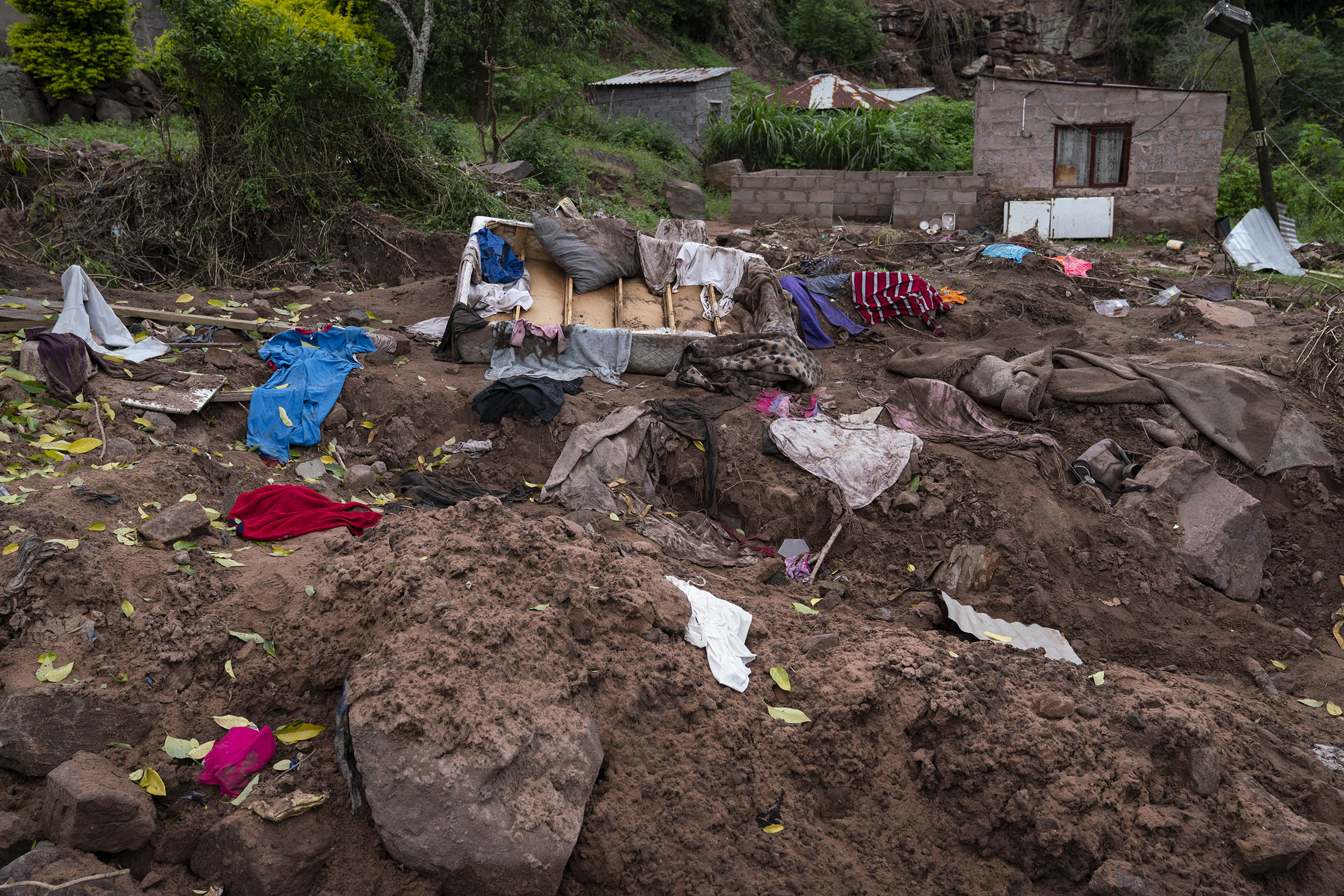

“At least there are people I can share my story with now. I no longer cry alone. While we are grateful for the support from humanitarians who give us food and clothes, we don’t know when and how we can rebuild our lives. Emotionally, the future seems bleak for me and my child and all we have here is each other and our stories,” Ntshangase says.
As the waters begin to recede, search and rescue missions continue. Community members alongside authorities walk for kilometres through thick mud, rocks and piles of washed away rubbish. Everyone is desperate to find the bodies to bury them with dignity.
